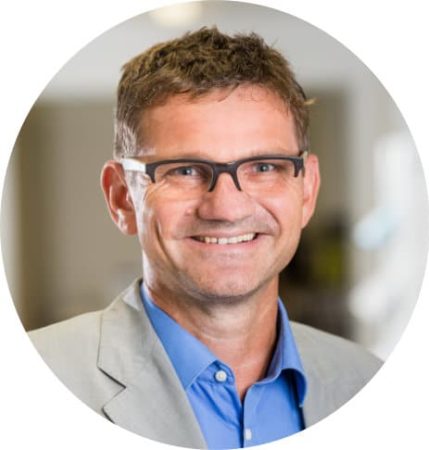Conrad Justus Schetter
Bonn International Centre for Conflict Studies
E-mail: Conrad.schetter@bicc.de
Phone: +49 (0) 228 91196-30
Bonn International Centre for Conflict Studies (BICC)
Pfarrer-Byns-Str. 1
53121 Bonn, Germany
China’s New Silk Road Initiative in North Rhine-Westphalia and Pakistan

Project Description
The research network De:link//Re:link: Local perspectives on transregional processes of entanglements and disentanglements uses the example of the Belt and Road Initiative initiated by China in 2013 to investigate new spatial configurations and local perspectives on transregional infrastructure projects in Asia, Africa and Europe. The acronym link stands for local insights and new knowledges.
Focusing on Germany and Pakistan, BICC investigates the influence of Chinese presence around the inland port of Duisburg as the end point of the New Silk Road in Europe and along the China–Pakistan Economic Corridor. With a process perspective, a doctoral dissertation will generate knowledge on the following questions: How are local societies being influenced by the implementation of large-scale infrastructure projects? How do projects gain acceptance, and what change processes are induced by Chinese-local encounters?
BICC is part of a larger consortium led by Humboldt-University Berlin. Other partners are the Centre for East European and International Studies and the Leibniz-Zentrum Moderner Orient. The transdisciplinary cooperation aims at strengthening multi-directional knowledge exchanges between area studies research institutions and other knowledge actors in Germany as well as in the research project regions.
Research Interests
- Civil-military nexus
- Politics of interventions
- Local politics
Vita
As Director of the Bonn International center for Conflict Studies (BICC), Conrad Schetter supports the project ‘China’s New Silk Road Initiative in North Rhine-Westphalia and Pakistan’.
Previously, he worked from 1999 to 2013 at the University of Bonn and at the Center for Development Research (ZEF) at the University of Bonn, where he was most recently acting Director.
His research focuses on space and violence (including borders, ethnoscapes, frontiers) on the one hand and fragile statehood and civil-military interactions on the other.
He is also a member of the executive board of Welthungerhilfe, a member of the board of trustees of the German Foundation for Peace Research (DSF) and a member of the board of the Afghanistan Working Group. He has given advice for several German ministries as well as non-governmental and governmental organizations.
Selected Publications
- Schetter, C. & Mielke, K. (2022): Die Taliban: Geschichte, Politik, Ideologie. München: Beck Verlag
- Kemmerling, B., Schetter, C., & Wirkus, L. (2022). The logics of war and food (in)security. Global Food Security, 33, 100634
- Schetter, C., Mkutu, K., & Müller-Koné, M. (2022). Frontier NGOs: Conservancies, control, and violence in northern Kenya. World Development, Volume 151 (March), pp. (tba).
- Schetter, C., & Müller-Koné, M. (2021). Frontiers’ violence: The interplay of state of exception, frontier habitus, and organized violence. Political Geography, 87(May), 102370
- Prinz, J., & Schetter, C. (2021). Spatial-moral ordering in the war on terror: Ungoverned spaces as a challenge to humanitarianism. Journal of Intervention and Statebuilding, 15(1), 96-113
- Prinz, J., & Schetter, C. (2017). Conditioned sovereignty: The creation and legitimation of spaces of violence in counterterrorism operations of the "war on terror". Alternatives, 41(3), 119-136
